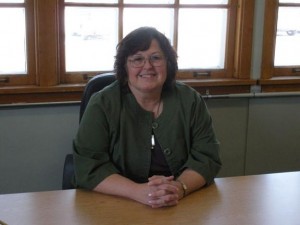Door County News: Booming Business – Local government ballooned as county developed
- Share
- Tweet
- Pin
- Share
This is the first in a series of articles about the evolution of municipal government in Door County.
The 1983 Liberty Grove budget was summarized in a small pamphlet with five pages devoted to the spending breakdown. It was supplemented by a two-page hand-scrawled budget worksheet.
The Village of Egg Harbor’s 1984 budget audit is succinctly outlined on three pages of general budget categories, and Ephraim’s 1983 budget included just $129, 403.50 in expenditures and was summed up on a single page. On Oct. 30, 1984, Sister Bay held a special board meeting to organize its budget. The minutes were recorded on one hand-written page, with the budget broken down on 13 lines.
The days of such simple government, even in small towns and villages, such as those dotting the Door Peninsula, are over.
“Local government is big business,” said Sister Bay Village Administrator Bob Kufrin. “In many communities it’s a major employer, and there’s a lot of money being spent.”
This year’s Liberty Grove budget encompasses nine pages of spreadsheets. Egg Harbor’s 2008 budget fills 20 pages. And Sister Bay’s 2009 budget runs a staple-challenging 40 pages.
The past decade has brought a little-documented explosion in local government. Small municipalities are employing more people, providing more services, and spending more money than anyone would have predicted just 15 years ago.
There are many reasons for the boom. Residents expect more services and amenities, such as parks, marinas, and better roads. Boards have shown a greater willingness to spend tax dollars, but much of the growth is beyond the control of local officials.
Dianne Kirkland recently retired from her job as Ephraim’s Clerk/Administrator after 25 years. In that time she saw her job change so much that when she looked at the job description and qualifications the village put together when it came time to find her successor, she had a stark realization.
“I wouldn’t qualify for my job if I applied today,” she said.
When she began working for the village in 1983, she was one of two quarter-time employees on the village payroll, working less than 15 hours a week. She owned a gift shop and did the job on the side, and baked and cleaned as well. Her primary training for the job was a bookkeeping class she took in high school.
“I hated it,” she recalled.
She stored some village files in her home, as did the village treasurer, while other records were stored in the basement of the Village Hall.
Around the same time, Walter “Bud” Kalms began working as clerk for the Town of Liberty Grove.
“I started in 1983 with a filing cabinet, copy machine, and a typewriter in a spare room in my house,” Kalms remembered.
At the time the town hall was located in the building now occupied by Ecology Sports, but there was minimal office space.
“It was a skeleton operation,” Kalms said.
Today, town and village operations are far more complex. State and federal regulations mandating more services, record keeping, and accountability on the part of local governments has greatly increased the workload.
Kirkland said she was required to keep track of the village’s fixed assets in much more detailed fashion than in the mid-1980s. This included an inventory of benches, streetlights, and just about anything else the village owned.
“Certainly local government is asked to do a lot more now than 20 – 30 years ago,” Kufrin said. “The regulations imposed have increased the complexity of government.”
Christie Scully has been Clerk/Treasurer for the Village of Sister Bay since 1991, when the village office staff included just her and former Administrator Ron Kane. Today Sister Bay employs four office personnel full-time and one part-time, and the room where board meetings were once held is home to stacks of filing cabinets.
Kufrin described one state-required job as an example of the ever-growing burden.
“Every other year the state requires a report on the condition of every single street in the village, from intersection to intersection,” he said. “They take that information and do something with it – I’m not sure what.”
Kufrin said rating the roads takes approximately 20 hours of his time driving around and evaluating sections, plus time to enter those evaluations into a database. If the information isn’t gathered, the municipality doesn’t qualify for state road aid.
Such requirements add to the workload, cost, and size of local government, but Kirkland said there’s justification to the requirements.
“They want to make sure you’re using the money right, that if you’re getting money for roads that’s where it’s going,” she said. “A lot of the regulations have sort of caused the towns to grow up a little bit.”
Kufrin agreed. He came to Sister Bay from the Milwaukee suburb of Oak Creek in 2004. The move from big city to small town administration didn’t come without struggles.
“I came from a community of 31,000 people and 230 employees,” he said. “I had more department heads than we have employees here. The problem I had was how to downsize that ‘big government’ background down to a community of about 900 people. You go from a place where government was relatively disconnected to one where people want their government to be in touch with them, where everybody may not know everybody, but it comes pretty close.”
Kufrin set about professionalizing and modernizing operations in Sister Bay. He had to adjust to working in a community where he had to do most of the work that he would have assigned to an employee in Oak Creek.
“All the rules and regulations the state and federal government hand down need someone to do it,” he said. “My biggest adjustment was that now I had to do it myself. There aren’t too many regulations imposed with a small, local government in mind.”
Election day is a case in point. Perhaps no task of local government has changed as rapidly as the counting of the vote. The debacle that was the 2000 Presidential Election resulted in the addition of layers of regulation and oversight to a process that clerks say was once a relatively simple part of their job.
“Now it’s unbelievably involved,” Kalms said. “There are lots of meetings and education.”
Clerks now are required to get six hours of election training every year, Kirkland said, plus additional education for poll workers. Kalms said new rules and procedures are constantly streaming in via email from the Government Accountability Board.
“A lot of that is due to the bigger cities where people don’t know each other,” said Scully. “Usually one of the poll workers we have working knows everyone who comes through the door.”
Being a tourism-dependent community puts added pressure on municipal government. Northern Door municipalities with just a few hundred permanent residents must build infrastructure as though they are small cities. Roads, fire stations, and water and sewer infrastructure must service thousands in peak season, and retirees and seasonal residents have high expectations.
“The people moving in today want the same services they had back in the city,” Kirkland said.
Ephraim owned only the Village Hall and the Anderson Dock when Kirkland started as clerk. Board meetings were held in the basement of the Village Hall until the village purchased the old kindergarten building and turned it into offices in 1989. Kirkland’s job became full-time in 1987, and in 1989 she became Administrator/Clerk. That was also the year Ephraim bought its first computer.
Back then Ephraim didn’t employ any full-time maintenance staff, but today it has three. In the last 15 years it has bought several parcels of land for public waterfront, and took over maintenance of a number of buildings.
When the village added a municipal sewer system in 1987 it immediately added to village expenses and staff. Beyond infrastructure, the new service added to the bookkeeping, maintenance, and administrative burden.
As the county’s reputation for tourism grew rapidly in the 1990s, development pressure squeezed residents, creating a push for stricter zoning and Smart Growth Plans. Once enacted, the zoning ordinances required enforcement, interpretation, and fighting off legal challenges.
Kufrin said the expanding expectations and ever-more complex rules and ordinances have made professional guidance a must for small communities. The days when government could be managed by a volunteer or lightly compensated board are gone. Municipalities risk lawsuits or losing out on state and federal aid if mistakes are made or deadlines missed, or if a property owner simply doesn’t like the rules.
“It’s harder and harder to find the time to volunteer to run local government,” Kufrin said. “There are people good at any number of things in a community. People good at running a gas station, or a restaurant or a bank. But you don’t find many people with a background of running local government. As a result, you’re finding more and more towns finding people with varying degrees of professional experience to run the town.”



